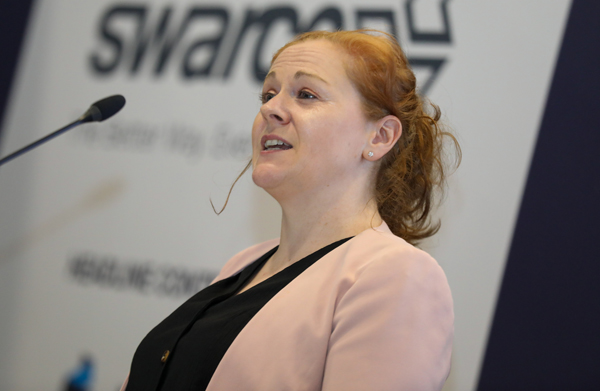The Office of Rail and Road (ORR) will launch a consultation this summer on how it could hold National Highways to account in the future, a top official told Traffex visitors.
Giving the keynote address on the second day, Rachel Gittens, the ORR’s deputy director for the strategic road network, also said the monitor expects to complete its investigation into the government-owned company shortly.
The outcome is set to be included in its 2023-24 annual performance assessment, due for publication this summer.
She noted that the probe, launched in February, followed last year’s annual assessment, which highlighted a number of risks that the company would need to manage during the last financial year.
Reflecting on the ORR’s role in holding National Highways to account, Ms Gittens said: ‘Balancing the needs of stakeholders, motorists, pedestrians, cyclists and residents requires careful consideration and collaboration amongst policymakers, industry stakeholders, and communities – and that transparency and accountability is clear to all and those who are responsible are held to account to deliver.’

She added: ‘As we look towards the new road period, we also need to look at ourselves. What are we going to do to improve and facilitate the evolving nature of priorities for the government, road users and stakeholders?
‘It is important that any regulation should facilitate enhancing performance, efficiency, accountability and transparency. But, they need to be able to adapt to address evolving needs and challenges, while remaining proportionate.
Ms Gittens noted that National Highways was created by the Infrastructure Act 2015 and will have been in place for 10 years by the start of RIS 3 next year, ‘and many of the regulatory framework documents in support of that legislation, while serviceable, need to represent the change in the maturity of all parties’.
She added: ‘Therefore, this summer, we will be launching a consultation on our holding to account policy. This is to ensure that we are responding to the needs of the future and the priorities of stakeholders and the supply chain.
‘We will be seeking responses from across the industry to understand how we can improve. This will aim to look at how we perform our current role; improvements in transparency and performance in accountability; what our role should be on wider aspects such as the environment and technology including connected and autonomous vehicles and how we can work better with other organisations.’
She concluded: ‘Ultimately we want an appropriate and proportionate framework which drives performance, accountability and provides clarity, consistency, and transparency in its application.’





